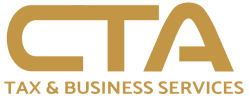When it comes to managing your taxes, many people assume that tax preparation and tax planning are the same thing—but they’re not. While tax preparation ensures you’re compliant with IRS requirements by filing your taxes accurately, tax planning takes a deeper, more strategic approach. It’s all about looking ahead and crafting a personalized plan to minimize your tax liability, protect your assets, and help you grow your wealth. Tax preparation is looking back and tax planning is looking forward. Understanding the difference between the two can make a significant impact on your financial future. Let’s break down what sets them apart.
Tax Preparation
Many taxpayers think of a tax preparer as someone responsible for minimizing their annual tax bill. Though a good tax preparer can sometimes find ways to help you save (they should know more about tax credits and tax deductions applicable to your business than the average person), the primary purpose of tax preparation services is simply to complete and file the necessary forms for you during tax season to comply with state and federal laws correctly and in a timely manner.
Tax preparation occurs once a year, after the close of the financial year, and generally during tax season (between January – April, or September – October if extension is filed). For most businesses and individuals, tax preparation involves only one or two exchanges with their tax return preparers over the course of a few months leading up to the tax deadline.
Tax preparation is looking back and tax planning is looking forward.
Tax Planning
Whereas the main goal of tax preparation is to ensure you’re operating in compliance with federal and state tax laws, the purpose of tax planning is actually to maximize tax savings (including minimizing penalties) for the tax advisor’s clients.
In contrast to tax preparation, tax planning is a year-round process that takes into account the client’s past tax filings, current financial situation and regulations, and future financial goals, and their year-round activity. Successful tax planning strategies therefore require ongoing communication between a business or individual and their tax advisor. This often involves an initial onboarding meeting, as well as regular communication between the tax advisor and client, as both the applicable tax laws and the business’s situation evolve. Tax planning is a more long term process and sets plans for immediate as well as long term benefits for the clients.






